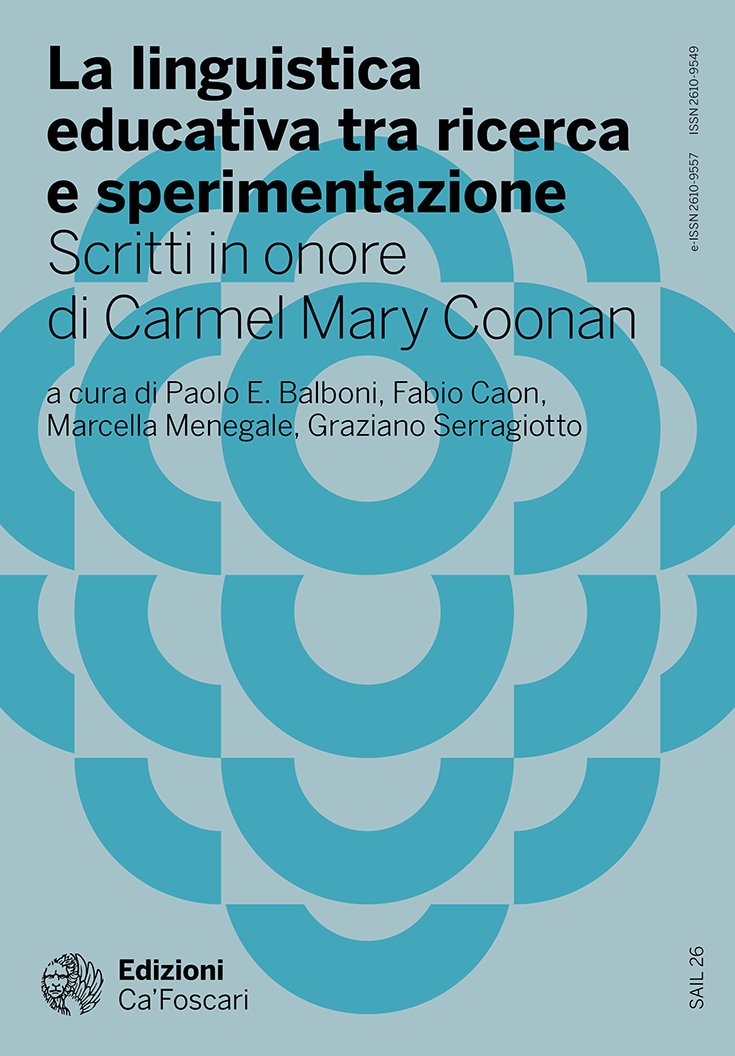Collana |
SAIL
Miscellanea | La linguistica educativa tra ricerca e sperimentazione
Capitolo | CLIL e professione per soggetti ‘svantaggiati’
CLIL e professione per soggetti ‘svantaggiati’
Abstract
The modern concept of European Adult Education is less and less about literacy courses or leisure time activities and more and more about support for immigrants, their integration into the host society or their professional (re)qualification. Particularly in the world of work, the language training of immigrants cannot be understood solely as a response to emergency situations related to communicative survival needs or even as a necessity to satisfy regulatory measures concerning the obtaining of a residence permit (Benucci 2014, Benucci, Grosso, Monaci 2021). In the sphere of work, pragmatic, sociolinguistic and cultural factors can compromise the success of communicative exchanges: communicative competence in the L2 is crucial not only for finding a job, but also for retaining it, improving one’s social conditions and interacting with colleagues. With a ‘disadvantaged’ type of audience, however, it is necessary to consider MAC (Mixed-Ability Classes), task-based, and CLIL approaches and teaching methods: courses for foreign adults can be less rigidly conceived and implemented than school courses, with a closer link between theory – language learning and practice, and learning a profession. In this contribution, an example of a transversal curriculum for sectoral-professional purposes is proposed, involving an assumption of the recognition, and the full right to be sufficient, of the partiality of skills and knowledge, as well as the adoption of a multilingual and pluricultural approach.
Pubblicato 28 Aprile 2023 | Lingua: it
Keywords Lavoro • CLIL • Adulti immigrati • Apprendimento • Svantaggio
Copyright © 2023 Antonella Benucci. This is an open-access work distributed under the terms of the Creative Commons Attribution License (CC BY). The use, distribution or reproduction is permitted, provided that the original author(s) and the copyright owner(s) are credited and that the original publication is cited, in accordance with accepted academic practice. The license allows for commercial use. No use, distribution or reproduction is permitted which does not comply with these terms.
Permalink http://doi.org/10.30687/978-88-6969-683-1/002
